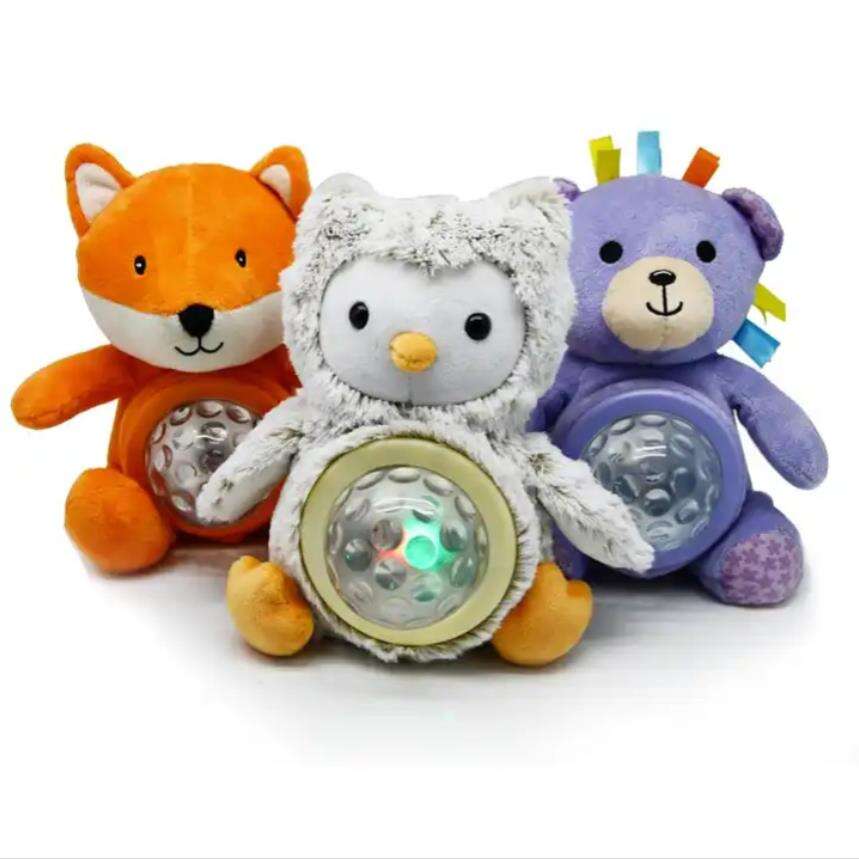Why Stuffed Animals Are Essential for Emotional Growth in Children
The Importance of Stuffed Animals for Children's Emotional Growth
Stuffed animals serve as vital tools in a child's emotional development, enriching playtime by fostering empathy and emotional understanding. Children often treat these plush toys as companions, engaging in imaginative play that involves storytelling and role-playing. Through these activities, kids learn to empathize as they navigate complex emotions, enhancing their capacity for understanding others.
Research supports the emotional benefits of stuffed animals, revealing that children who interact with these toys often report higher levels of emotional well-being and attachment. Studies, such as those by Winnicott (1953), highlight that stuffed animals serve as transitional objects, providing comfort in unfamiliar or distressing situations, which contributes to a sense of security. This secure attachment is crucial for emotional resilience.
Caregivers play a pivotal role in cultivating secure attachments through interactions involving stuffed animals. When adults partake in play, they reinforce trust and comfort, ensuring that children feel secure and supported. This nurturing environment encourages kids to develop emotional resilience and a strong sense of trust in their relationships with others. By fostering these secure attachments, the presence of stuffed animals becomes a bridge to emotional growth and stability.
How Stuffed Animals Provide Comfort and Security
Stuffed animals often create a sense of safety and comfort, as highlighted in numerous child psychology studies. These plush toys offer emotional security and serve as transitional objects that help children navigate unfamiliar or distressing situations. As renowned psychoanalyst Donald Winnicott noted, such transitional objects, including stuffed animals, allow children to develop independence while maintaining a link to security (Winnicott, 1953). They provide a consistent source of comfort that is crucial for emotional support, particularly in stressful environments.
In addition to providing comfort, stuffed animals also act as effective coping mechanisms to reduce anxiety in children. Experts corroborate their therapeutic value, suggesting that holding a soft, cuddly toy can significantly alleviate feelings of anxiety, especially during instances of parental separation or unfamiliar experiences. According to Tyson, a childhood behavioral expert, items like stuffed animals are essential for emotional security since children perceive them as an extension of love and reassurance from caregivers. Moreover, research has demonstrated their role in lowering anxiety levels by offering immediate tactile solace, thus promoting emotional resilience and well-being in children.
Encouraging Social and Communication Skills with Plush Toys
Stuffed animals serve as valuable tools for enhancing social and communication skills in children, often through role-playing scenarios that promote interaction and socialization. Children frequently engage in pretend play with plush toys, imitating real-life situations such as having tea parties, visiting the doctor, or going to school. These playful interactions facilitate the development of empathy and cooperation, as children learn to express emotions and understand the perspectives of others.
Moreover, imaginative play with plush toys is instrumental in nurturing conversation skills. Studies have shown that engaging with such toys can significantly improve verbal communication abilities in children. For instance, researchers have observed that children who partake in dialogue-driven play with their stuffed animals often demonstrate a greater capacity for storytelling and verbal expression. This kind of play offers a safe and non-judgmental environment for children to practice language and explore new words or expressions, fostering a sense of confidence in their communication skills.
The Cognitive Benefits of Playing with Stuffed Animals
Stuffed animals significantly enhance children's language skills through various playful activities. For instance, children can engage in conversation with their plush toys, treating them as interactive participants in dialogue. This exercise not only facilitates language development but also aids in vocabulary acquisition as children use new words and construct sentences during these interactions. A game commonly enjoyed by children involves assigning stories and roles to their stuffed animals, which enriches their linguistic abilities by encouraging the use of diverse vocabulary and sentence structures.
Moreover, the imaginative play associated with stuffed animals promotes creativity and storytelling, vital for cognitive development. This type of play allows children to invent narratives and explore fictional worlds, enhancing their ability to construct coherent stories and express themselves better. Child development experts emphasize the importance of narrative play, highlighting its role in fostering cognitive and emotional growth. For example, children might create journeys that involve their weighted stuffed animals being explorers or heroes, thereby engaging their imagination and problem-solving skills. This storytelling capability, nurtured by plush toys, is crucial in developing both verbal communication and cognitive flexibility, laying a foundation for effective problem-solving and creative thinking.
By incorporating these playful yet educational activities, stuffed animals prove to be much more than mere toys; they are essential tools in the developmental arsenal, aiding in the overall cognitive advancement of children.
Self-Soothing and Independence Through Stuffed Animals
The importance of self-soothing is highlighted by products such as the Baby Deer Cotton Pillow and the Baby Pillow. These items are designed to offer physical comfort, making them essential companions for infants. Built with 100% cotton and filled with latex particles, these pillows offer a soothing touch that helps babies calm down and get comfortable, thereby promoting self-soothing habits from an early age.
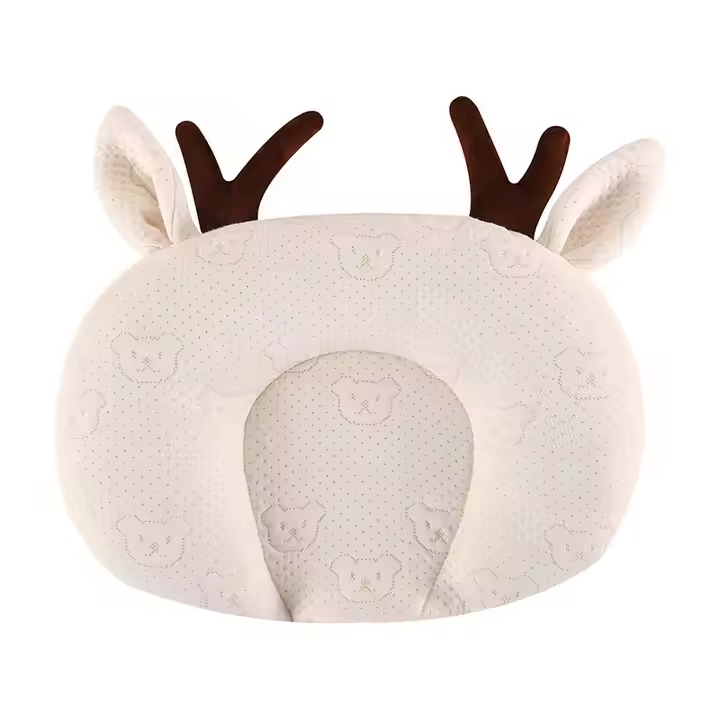
The Baby Sleep Soothing Toys Plush Bunny is a quintessential item designed for both emotional support and developmental benefits. These plush toys not only serve as comforting companions but also assist in nurturing a child’s emotional well-being through tactile experiences. Made from PP cotton and bean fleece, these toys can withstand gentle cuddling, providing a sense of security and enhancing the soothing process for children of various age groups.
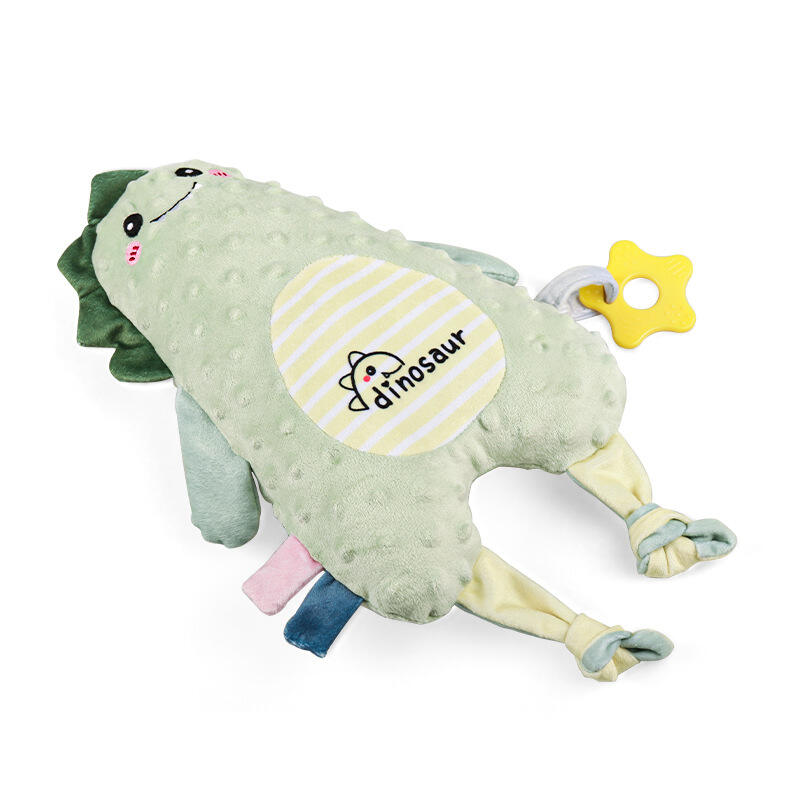
Furthermore, the Baby Comforter Blanket and 360-Degree Petal Children's Bib add to a child’s growing sense of autonomy and security. These products are not only practical in design, offering water and dirt proof capabilities, but their snug textures also help foster a child’s independence. They encourage children to explore their environment with confidence, knowing they have reliable and comforting accessories by their side.
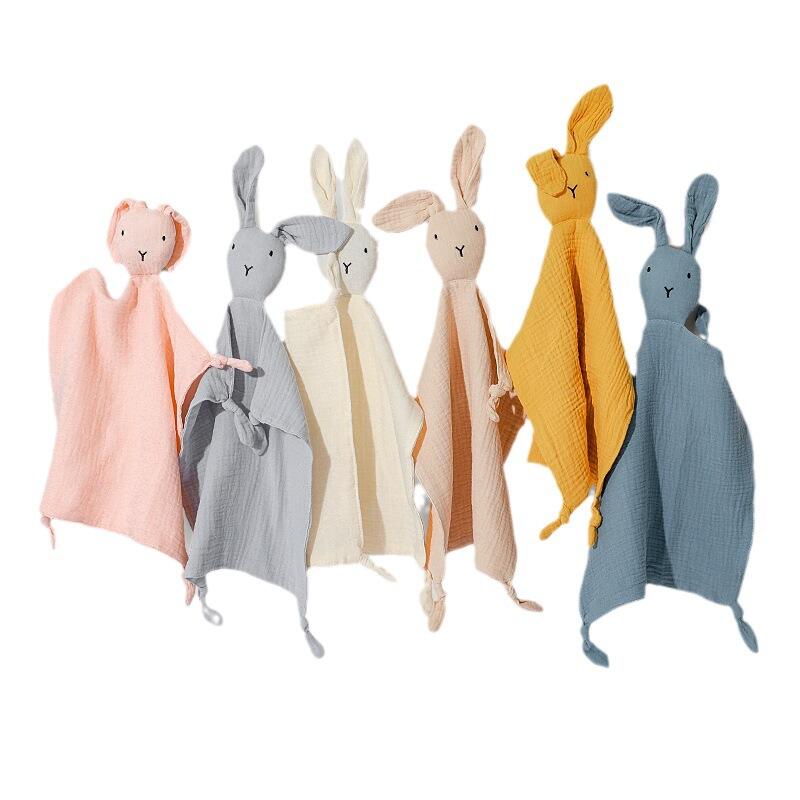
Recommended Products
Hot News
-
Selecting the Right Educational Toys for Different Age Groups
2024-11-08
-
Materials Used in the Production of Stuffed Animals
2024-11-04
-
Chinese Plush Toy Factories Lead the Global Market with Innovation and Quality
2024-01-23
-
How Plush Toys Can Boost Your Mental Health and Well-Being
2024-01-23
-
Plush Toys Factory Industry Trends: A Growing Market with Challenges and Opportunities
2024-01-23
-
Plush Toys Market Demand on the Rise
2024-01-23
-
Woodfield Website Online
2024-01-22
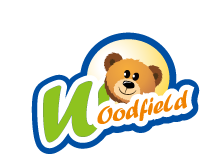
 EN
EN
 AR
AR
 BG
BG
 HR
HR
 DA
DA
 NL
NL
 FI
FI
 FR
FR
 DE
DE
 EL
EL
 IT
IT
 JA
JA
 KO
KO
 NO
NO
 PT
PT
 RO
RO
 RU
RU
 ES
ES
 SV
SV
 TL
TL
 IW
IW
 ID
ID
 SR
SR
 UK
UK
 HU
HU
 MT
MT
 TH
TH
 TR
TR
 FA
FA
 MS
MS
 GA
GA
 IS
IS
 EU
EU
 BN
BN
 LO
LO
 LA
LA
 SO
SO
 KK
KK

